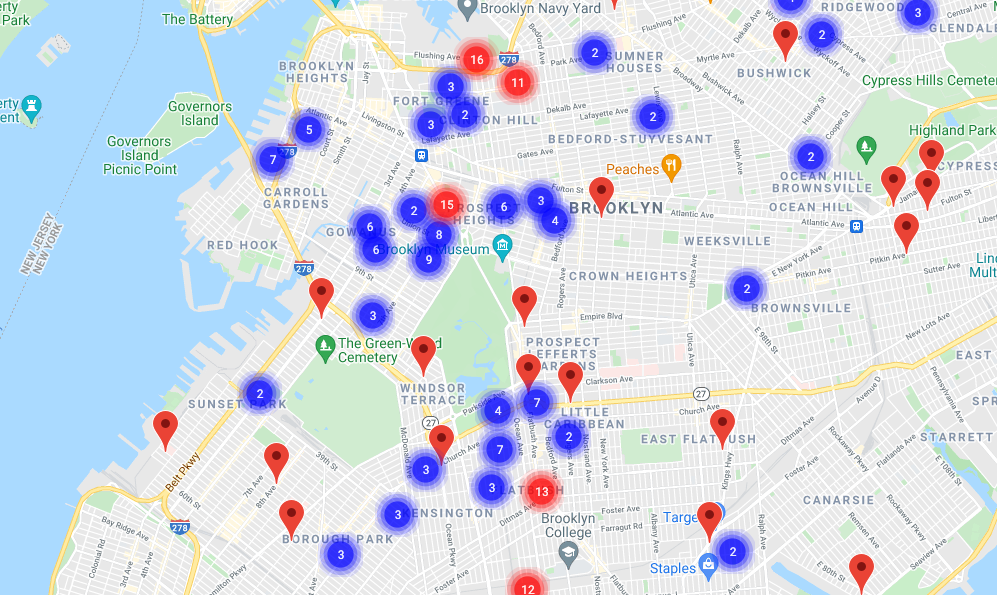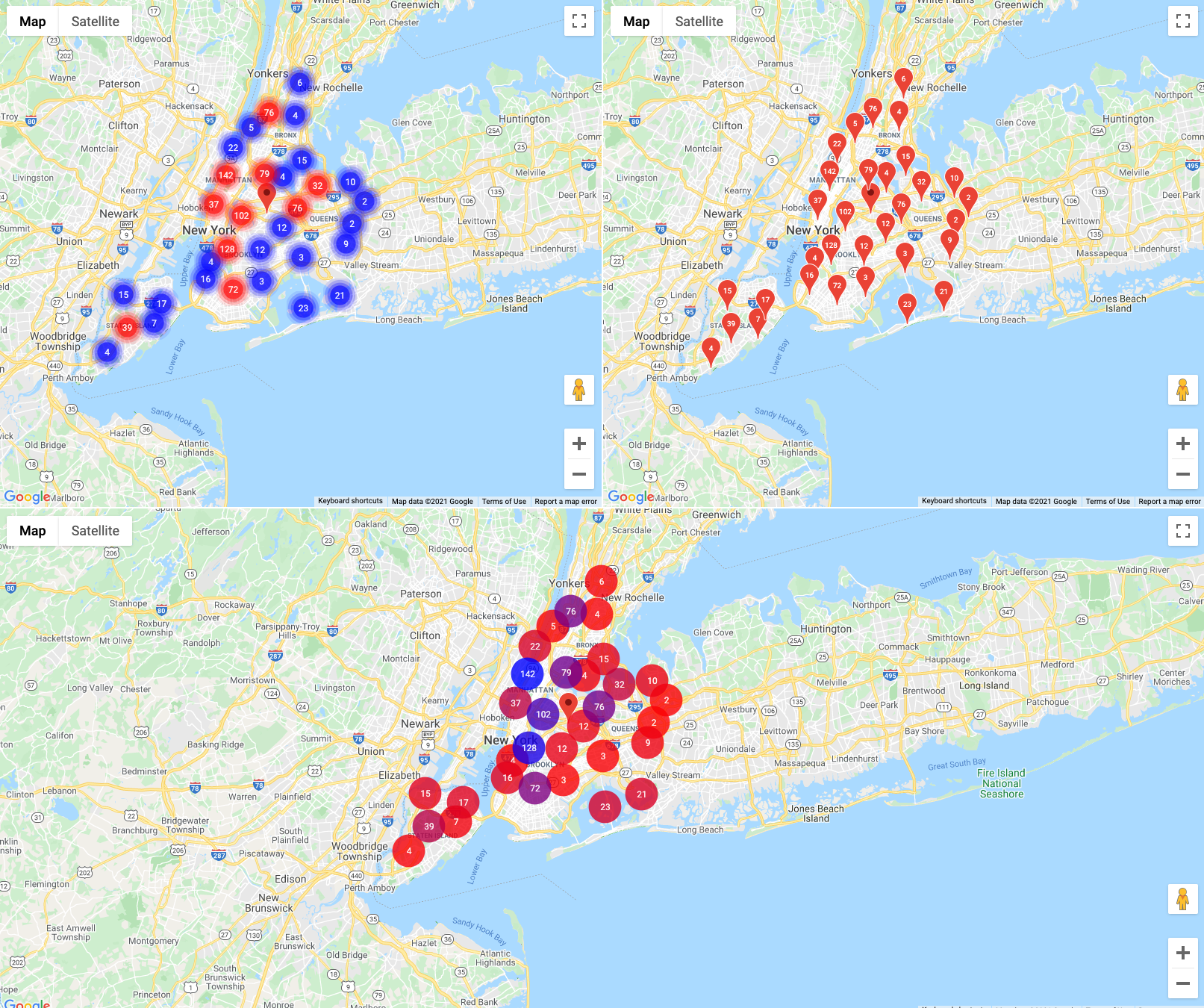Gathering detailed insights and metrics for @googlemaps/markerclusterer
Gathering detailed insights and metrics for @googlemaps/markerclusterer
Gathering detailed insights and metrics for @googlemaps/markerclusterer
Gathering detailed insights and metrics for @googlemaps/markerclusterer
marker-clusterer-plus
Clone of markerclustererplus, but works with npm out of the box
@googlemaps/js-api-loader
Wrapper for the loading of Google Maps JavaScript API script in the browser
@googlemaps/google-maps-services-js
Node.js client library for Google Maps API Web Services
@googlemaps/url-signature
Sign a URL for Google Maps Platform requests.
Create and manage clusters for large amounts of markers
npm install @googlemaps/markerclusterer99.2
Supply Chain
100
Quality
81.6
Maintenance
100
Vulnerability
100
License
Module System
Min. Node Version
Typescript Support
Node Version
NPM Version
234 Stars
707 Commits
86 Forks
23 Watching
11 Branches
22 Contributors
Updated on 25 Nov 2024
Minified
Minified + Gzipped
TypeScript (93.43%)
JavaScript (6.57%)
Cumulative downloads
Total Downloads
Last day
-6%
155,049
Compared to previous day
Last week
-0.7%
836,962
Compared to previous week
Last month
5.1%
3,666,883
Compared to previous month
Last year
51.1%
36,405,474
Compared to previous year
2
32
The library creates and manages per-zoom-level clusters for large amounts of markers.

See the history section and migration section for how this library relates to @google/markerclusterer and @googlemaps/markerclustererplus.
Available via npm as the package @googlemaps/markerclusterer.
npm i @googlemaps/markerclusterer
Alternativly you may add the umd package directly to the html document using the unpkg link.
1<script src="https://unpkg.com/@googlemaps/markerclusterer/dist/index.min.js"></script>
When adding via unpkg, the MarkerClusterer can be accessed at markerClusterer.MarkerClusterer.
This library uses the official TypeScript typings for Google Maps Platform, @types/google.maps.
1npm i -D @types/google.maps
The reference documentation is generated from the TypeScript definitions.
1import { MarkerClusterer } from "@googlemaps/markerclusterer"; 2 3// use default algorithm and renderer 4const markerCluster = new MarkerClusterer({ map, markers });
View the package in action:
Algorithm Comparisons - This example demonstrates the different algorithms. Please note that spacing and many other options can be changed for each algorithm.
Renderer Usage - This example demonstrates different renderers similar to the image below.

This library has a heritage in @google/markerclusterer and @googlemaps/markerclustererplus, originally made available on code.google.com and then transferred to GitHub at https://github.com/googlemaps/v3-utility-library. The following is an approximate timeline.
The API of @googlemaps/markerclusterer has changed in a number of ways from @googlemaps/markerclustererplus.
MarkerClusterer class now accepts an algorithm and renderer parameter to allow for more flexibility. The interface looks like the following:1{ 2 algorithm?: Algorithm; 3 map?: google.maps.Map; 4 markers?: google.maps.Marker[]; 5 renderer?: Renderer; 6 onClusterClick?: onClusterClickHandler; 7 }
MarkerClusterer accepts a single options argument instead of positional parameters.GridAlgorithm is still supported, but is not the default. The default is supercluster which uses k-d trees for improved performance.MarkerClusterer class is still an instance of google.maps.OverlayView, but uses google.maps.Markers instead of google.maps.Overlay to render the clusters. This solves issues related to the usage of map panes and click handlers.
No vulnerabilities found.
Reason
no dangerous workflow patterns detected
Reason
security policy file detected
Details
Reason
no binaries found in the repo
Reason
license file detected
Details
Reason
SAST tool is run on all commits
Details
Reason
5 existing vulnerabilities detected
Details
Reason
Found 2/5 approved changesets -- score normalized to 4
Reason
dependency not pinned by hash detected -- score normalized to 3
Details
Reason
1 commit(s) and 0 issue activity found in the last 90 days -- score normalized to 0
Reason
detected GitHub workflow tokens with excessive permissions
Details
Reason
no effort to earn an OpenSSF best practices badge detected
Reason
project is not fuzzed
Details
Score
Last Scanned on 2024-11-25
The Open Source Security Foundation is a cross-industry collaboration to improve the security of open source software (OSS). The Scorecard provides security health metrics for open source projects.
Learn More